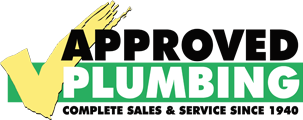In 2011, the Reduction of Lead in Drinking Water Act (No Lead Law) was signed into law which amends Section 1417, the Safe Drinking Water Act (SWDA) to more strict code. The law requires all service line pipes, valves, fittings, and fixtures to lower the lead content significantly for the wetted surfaces of plumbing products. The lead content will reduce from 8.0% to 0.25%.
Drinking water with a slight concentration of lead can cause a variety of effects. Exposure to lead in children can result in physical and mental delays. Drinking lead can cause learning disabilities and create problems with attention span. In adults, it can cause high blood pressure. Lead is rarely found in the actual water source. It is typically entered into the plumbing system from lead-made plumbing products.
The effective date of the No Lead law was January 4, 2014. This provided a three year timeframe for plumbing suppliers to transition into the new standards. Both, point-of-use and point-of-entry devices must abide by the new No Lead Law. Products affected by the new No Lead Law include:
- Dish washers
- Water heaters
- Sink & shower faucets
- Pressure reducer valves
- Shut off valves
- Temporary & emergency repair fittings
- All Pipes & fittings
The No Lead Law affects appliances that provide potable water. Potable water is the water to be used for human ingestion. Examples of potable water usage are drinking, teeth brushing, maintaining oral hygiene, dish washing, and food preparation. Products with lead content over 0.25% can be used for a building that does not provide potable water as long as the building has a backflow preventer so the lead does not get into the main distribution system.
Although the EPA discourages using lead in potable water systems, some systems are not affected by the new No Lead Law. Stand-alone appliances, such as coffee makers and pour through water filters, which are not plumbed into the drinking water distribution system do not have to meet the No Lead Law since it is not affecting a distribution system. For more information, or to schedule a consultation, call us at 440-526-2905.



Leave a Reply